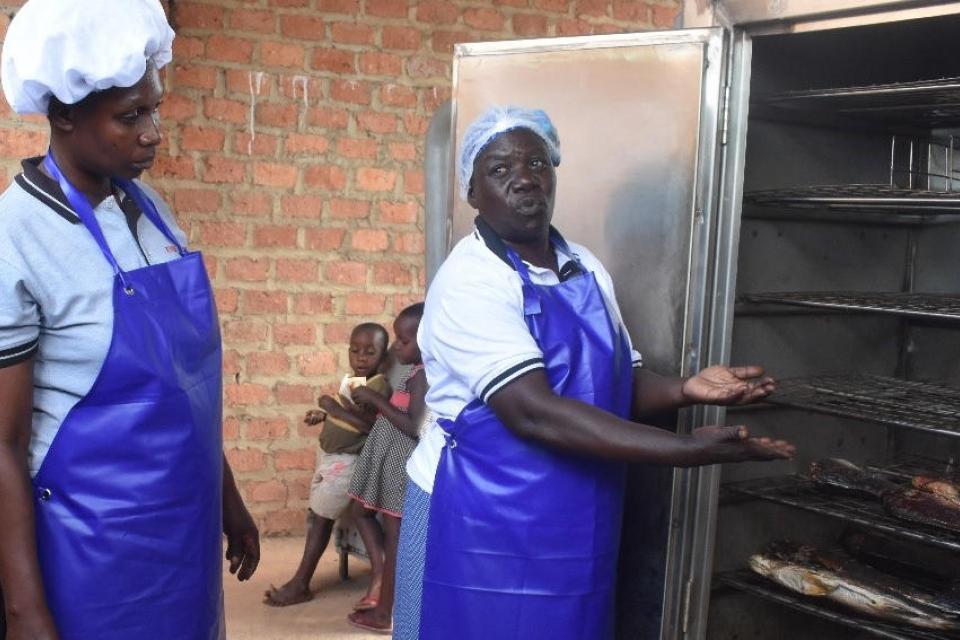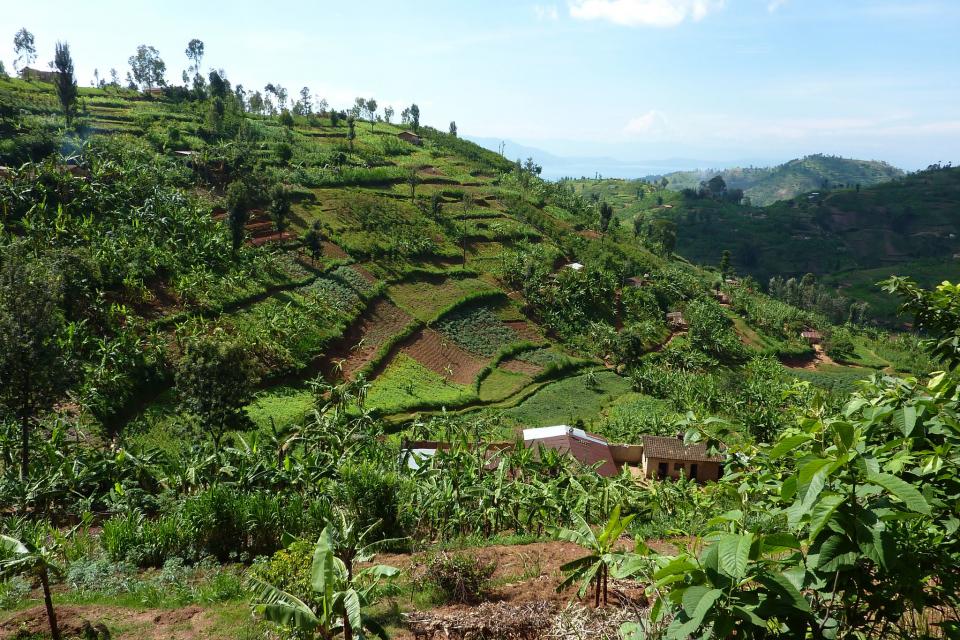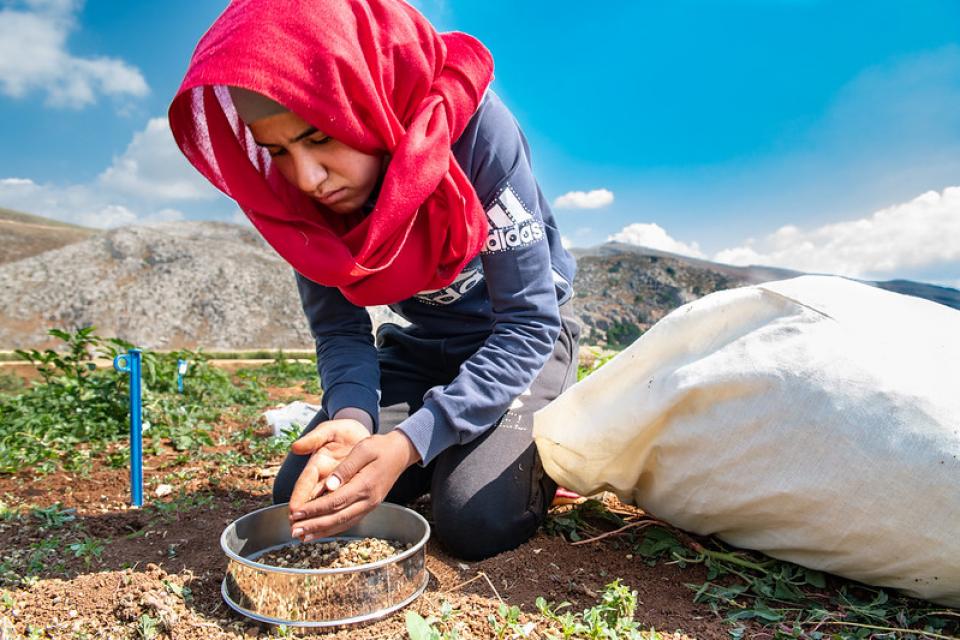Cone-garden technology a game-changer in the fight against malnutrition in Kenya
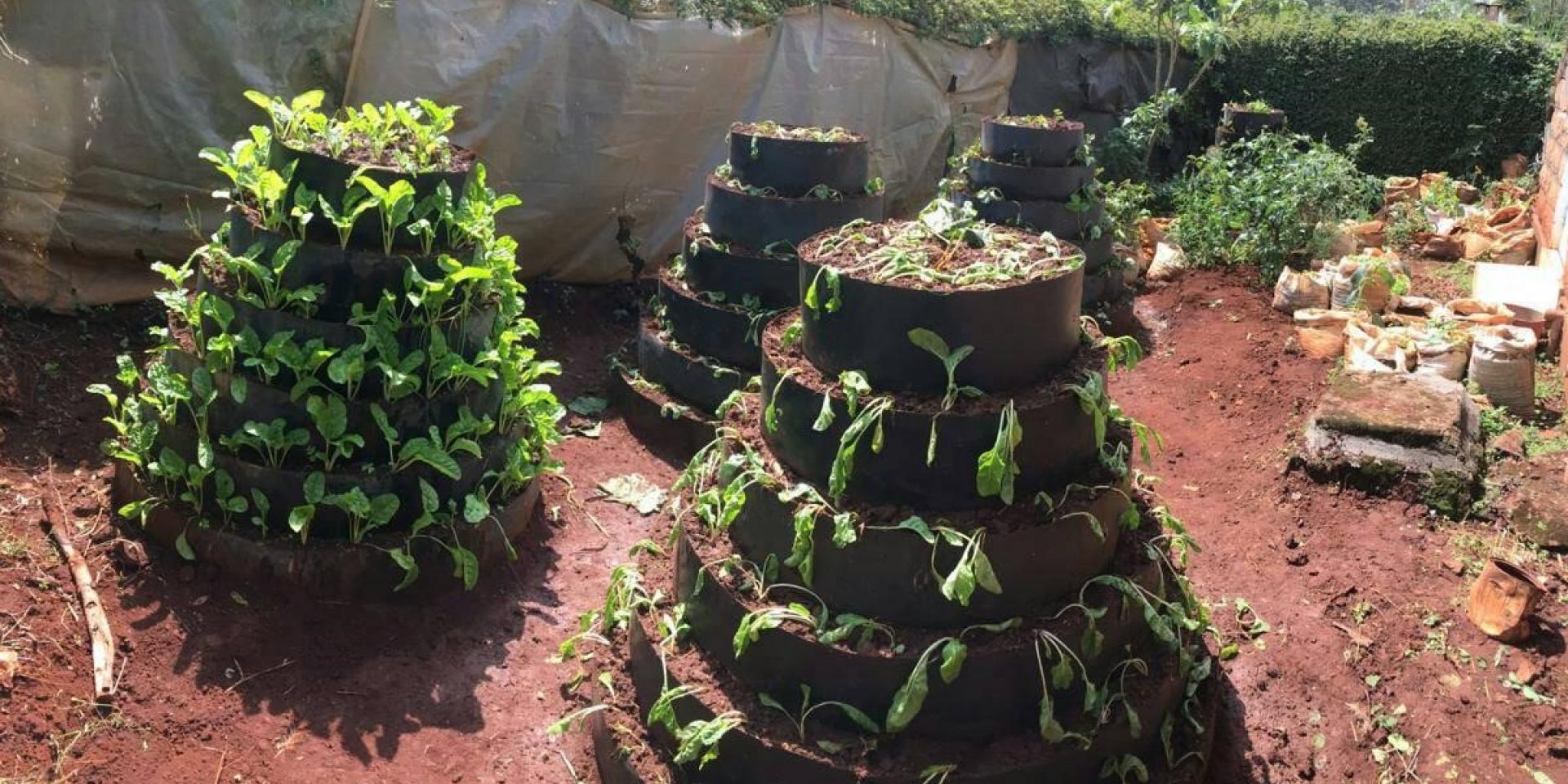 Photo: Farm Big Africa.
Photo: Farm Big Africa.
In early 2023, the CGIAR GENDER Impact Platform ran a series of virtual training modules for science communicators on how to develop and pitch stories on agricultural technologies that work for women.
The story below was produced by Pauline Njathi as a result of this training. Enjoy!
Cone gardens are transforming vegetable growing in drought-stricken areas of Turkana (Kenya’s largest county), and helping women tackle the increasing problem of malnutrition.
The cone gardens look like an ice cream cone, and women use them to grow vegetables like kale, spinach and okra.
But their real beauty lies in the super-efficient use they make of water and nutrients.
Peter Outa, communications manager for PanAfricare, says his organization introduced the cone gardens because they were concerned about the effect of malnutrition on pregnant and lactating mothers.
“One of the big advantages of cone gardens is that women can grow vegetables without needing to bend over to ground level to work on them,” he says. “This makes it much easier for pregnant women.”
“Another advantage is that the gardens use drip irrigation and are very efficient in their use of water, so women do not have to walk long distances to get water.”
PanAfricare adopted the ‘learning by doing’ strategy for the women and taught them how to construct and maintain cone gardens.
The gardens are made from arranging soil in a conical shape using polythene sheets (dam liners) and recycled paper from construction sites, or recycled drums.
Women are taught how to service the gardens, use biochemicals correctly and farm vegetables. As well as building the gardens, they participate by bringing soil.
The women were also made aware of the importance of healthy diets, especially of consuming vegetables.
“Before PanAfricare came here, my family would only eat vegetables once a week; now we eat vegetables every day,” says Mercy, a farmer and beneficiary of PanAfricare’s Improved Approach to Community-Based Nutrition (IMPACT) in Turkana program.
Cone gardens ensure a steady supply of vegetables to households because they come with storage tanks and irrigation pipes fitted onto them. The irrigation system mirrors that of drip irrigation, where water slowly drops near the roots of the plants. This is an efficient use of water, especially in water-stressed areas like Turkana.
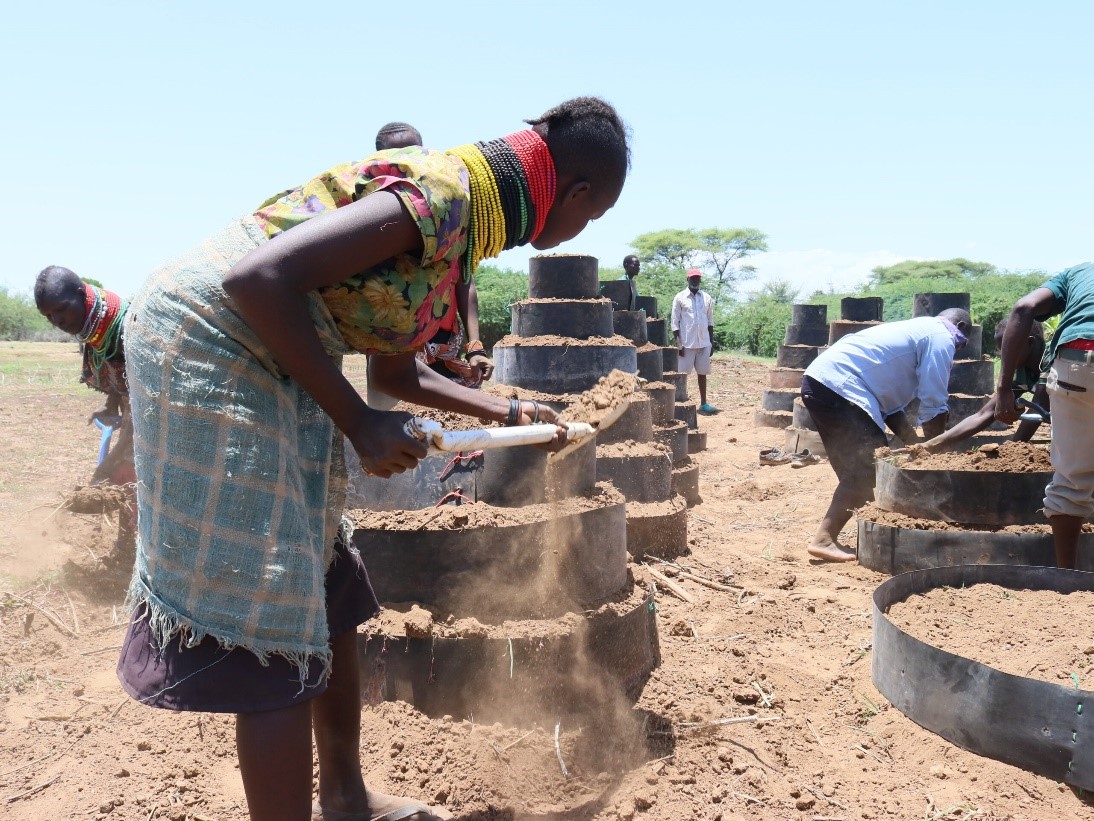
The women in Turkana, during the teaching period of the IMPACT program, constructing cone gardens for their village. Photo: Pauline Njathi.
The system has quickly built up popularity because of how helpful it is in drought-stricken areas. Because of its minimal water use and how it concentrates nutrients, it is helping women produce a variety of vegetables needed to tackle Turkana’s worsening malnutrition problem.
Mark Etoi, a field officer with PanAfricacare, says the program has been successful so far.
“Children have improved health-wise. Even in appearance, they look healthier,” he says.
Acute malnutrition has increased across Kenya’s pastoral and marginal agricultural areas, especially for women in rural Turkana, according to the July 2022 Integrated Food Security analysis. Recurrent droughts have left many households in the region without a reliable source of food.
In Kenya, one of the primary barriers that women face in accessing food is economic. Women are more likely to live in poverty than men and have fewer economic resources available to them. As a result, women struggle to afford food for their families, especially during times of economic hardship.
Another challenge facing women in accessing food is a lack of education and skills to grow their food or prepare nutritious meals. Many women may not have access to information about the importance of a balanced diet or the health risks associated with malnutrition.
This affects the general health of women, and women who are undernourished find it hard to produce breast milk, meaning those breastfed babies and children also suffer.
The community has now adapted to farming using cone gardens. Once the household nutrition is satisfied, the women transition to commercial farming.
The women were also trained about seed banking, which empowers them economically because they then do not have to buy seedlings for farming. PanAfricare plans to reach more households and over 8,800 women in Turkana and other drought-stricken areas.
--
Disclaimer: This story has not been reviewed by the CGIAR GENDER Impact Platform; the views expressed here are those of the author(s) and do not necessarily reflect the views of the Platform.
